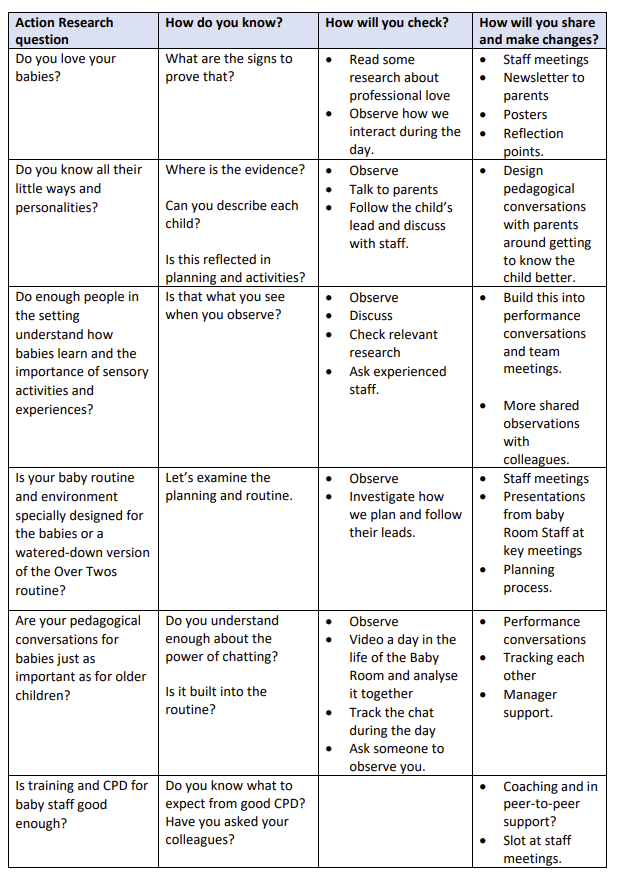How can we make sure policy makers take them seriously? asks June O’Sullivan…
I have long reluctantly accepted that any child under two is almost non-existent in our early years policy. But just for the record, children arrive at nursery sometimes as young as three months old, and by six months many are in fulltime daycare for up to ten hours a day.
So, why are they so invisible? We know that investing in early years is the best way we can nurture society, but the few policies that support that statement mostly focus on children aged three-plus, with a nod at the two-year-olds.
The First 1001 Days Movement challenges national and local decision makers to value and invest in babies’ emotional wellbeing and development. Read Alison Gopnik’s work or watch her Ted Talk and you will find that baby brains are fizzing with synaptic connections.
Their brains are flooded with neurotransmitters that are inducing learning and plasticity. And the inhibitory parts haven’t come on yet.
Research scientist Dr Suzanne Zeedyk would tell you that the way we relate to babies shapes their brains, and early years specialist Alice Sharp has written books rejoicing about babies and what they can do.
Today, babies face a new challenge – especially those born during the pandemic. Two-year-old children have spent almost 80% of their life in the pandemic and those aged 18-months have spent their entire life living through it.
In the Babies in Lockdown report parents raised their concerns, which included:
Now that these babies are attending nurseries, we are observing their progress. Have you noticed if babies are particularly anxious or their physical development is delayed?
Have you noticed if trying to learn to communicate with adults wearing masks has impacted on their social and communication development?
After all, watching people’s mouths or following their expressions and responses is a critical element of children’s early language learning.
Are we taking babies seriously enough? Do we invest enough in staff who lead baby rooms? Some time ago I got involved in baby room research with Kathy Gooch and her team at Canterbury University.
Sadly, she confirmed that baby rooms were often led by inexperienced staff and the status in the nursery (and across the sector) for baby room staff was low.
Now is the time to change this. We can start by doing some action research in our settings. Practitioner/teacher-led action research is a wonderful means of investigating practice and gaining a deeper understanding of what is happening for the babies.
For those unfamiliar with action research, it is best described in three steps:
Look: Ask a question or observe and describe the issue to be investigated. Gather information, starting with observations.
Think: Analyse and interpret the data you are finding. What is it telling you? Think long and hard. Look at what is happening, be objective and talk about what you see.
Act: Judge the value of the findings. Formulate solutions and get the support of your team. Tell the story and agree how to embed it in practice.

For some example Action Research questions, download the PDF at the top of this page.
We need to make sure babies have the best experiences to support their development. To make policy makers realise that babies matter, we must raise the status of our baby room staff. Let’s celebrate best practice for babies, provide access to relevant high-quality training and build their skills as action researchers.
Baby room staff need to become experts in their field so they can shout out for our youngest children.
June O’Sullivan MBE is the CEO of the London Early Years Foundation. Visit June’s blog at leyf.org.uk/junes-blog or connect on Twitter @JuneOSullivan
